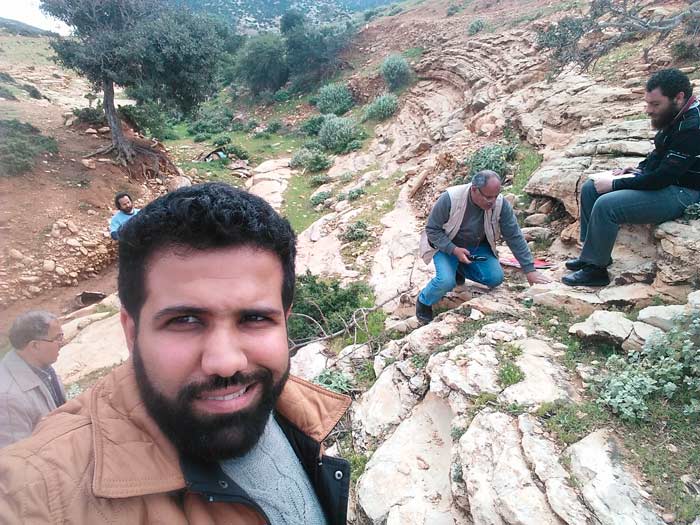October 10 2022 – 16h15: Palevoprim seminar
Speaker
Mohammed Alriaydh
Lecturer, University of Benghazi, Benghazi, Libya
Ph.D. Student, Johann Wolfgang von Goethe Universität, Frankfurt am Main and Senckenberg Naturmuseum Frankfurt, Germany
Topic
The vertebrate fossil assemblage of the upper member of the Messinian rock units, As Sahabi site, NE Libya: Paleoecological and Paleoenvironmental implications.
This seminar expose my PhD project for the next years: It aims to reconstruct the palaeoenvironment of the As Sahabi fossil site. Using the numerous fossil mammals recovered so far by the ISRP project (International Sahabi Research Project) and the ELNRP project (East Libya Neogene Research Project, including unpublished material), quantitative analysis and statistical models will be performed to investigate the palaeoecological and taxonomical structures of the assemblages. Taxonomic identification will be based on the numerous publications involving the As Sahabi fauna (e.g., Boaz et al. 1987, 2008; Werdelin & Sanders, 2010) and on anatomical comparisons with material housed in different museums. Fossil remains will be replaced in their geological context following the revised stratigraphy by El-Shawaihdi et al. (2016), this will help distinguish the palaeo-communities and give clues about the palaeobiogegraphical connections of the As Sahabi locality. Eco-variables (like body mass, feeding preferences, and mode of locomotion) will help reconstruct the diversity and the relative extent of the habitats during the Late Miocene of Libya.

The results will then be compared with those from other Mio-Pliocene sites from Italy (e.g. Baccinello-Cinigiano basin) and Kenya (e.g. Lothagam), but especially Chadian sites (Fara et al., 2005; Le Fur et al., 2009, 2014). Since the earliest known hominid Sahelanthropus tchadensis has been found in Chad (Toros-Menalla, Late Miocene; Brunet et al., 2002), and given the faunal similarities between the Chadian and Libyan Mio-Pliocene sites (see Lihoreau et al., 2006; Boaz, 2008), it is hoped that this study will add to our knowledge about the ecology of early hominids at this crucial time of global climatic change and spatial dispersal (Cerling et al., 1997).




